Getting started in tournament fishing: A primer
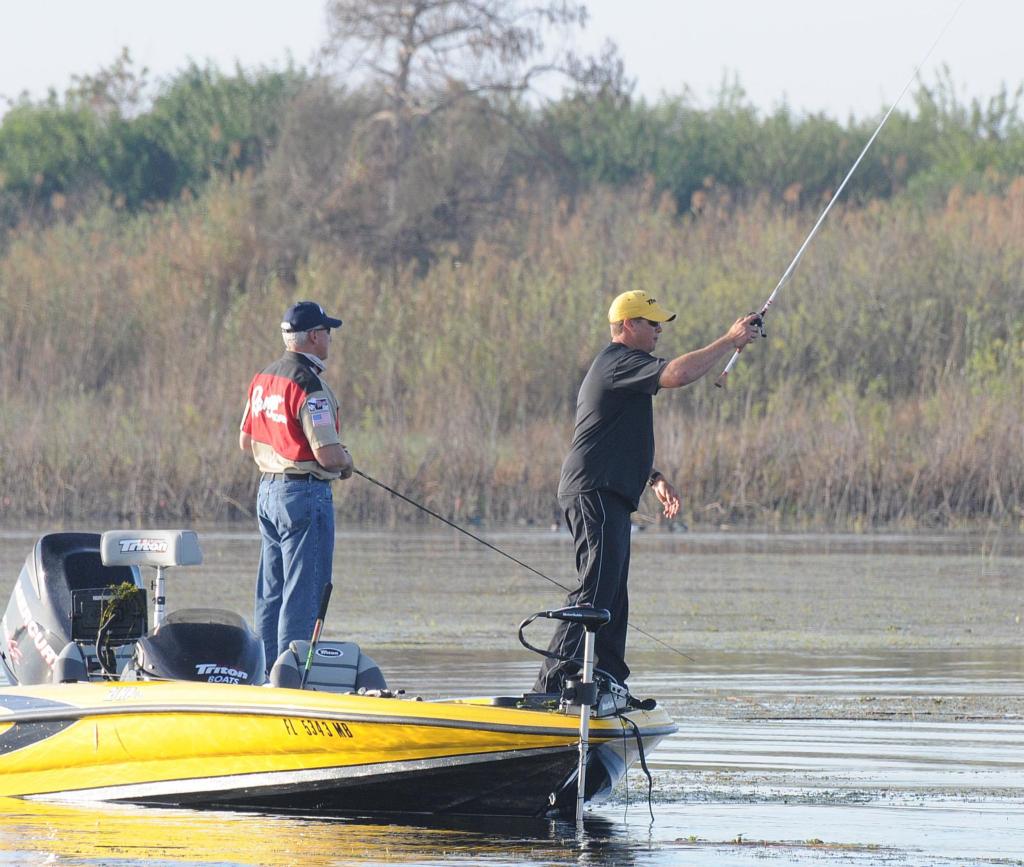
How do I get started in tournament fishing?
This is one of the questions most frequently asked of professional anglers. The wording may differ here and there – What tips do you have for a beginner who wants to enter tournaments? How do I become a pro? What advice do you have for a 26-year-old co-angler who fishes the BFLs? etc. – but the question endures, generation after generation.
While there may not be a one-size-fits-all answer, there is a common thread that runs through the advice pros give time and time again: Fish local tournaments as an amateur or co-angler, learn as much as you can from your pro partners, and then work your way up the tournament ladder.
——————————————
Editor’s note: Countless articles have been published that provide much more detail about getting started in tournament fishing, including many at FLWOutdoors.com. We offer a few series – Co-angler Clinic , The Business of Fishing and Performance Psychology and Tournament Fishing – offering a whole host of informative pieces that provide greater depth on the amateur, business and mental side of fishing and that are as relevant today as when they were first published at FLWOutdoors.com. Survey the list of topics covered, select an article relevant to you, and click on the link.
——————————————
Start locally and from the back of the boat
Whether you’re into bass fishing or walleye fishing, chances are you won’t have to travel far to test the tournament waters. If a town exists near a body of water, residents will have nearby tournaments to 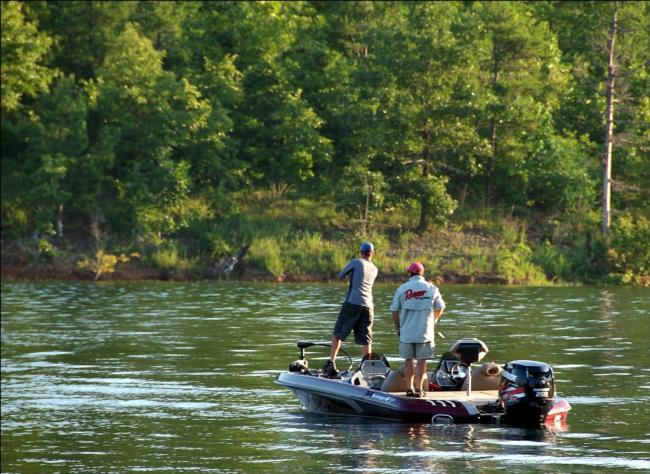 consider for a starting point. Some may be annual local events or club-sponsored tourneys while others may be hosted by regional or even national circuits that make stops in your neck of the woods.
consider for a starting point. Some may be annual local events or club-sponsored tourneys while others may be hosted by regional or even national circuits that make stops in your neck of the woods.
Enter a tournament that feels right for you, taking proximity, cost and timing into consideration, among other relevant factors.
Conventional wisdom suggests you start off on the amateur side of competition (co-angler) or as a member of a team; either way, pick a tournament where you won’t need to operate the boat so you can concentrate on learning from your more experienced partner.
Learn before you leap
Soak up all the information you can while fishing with a pro; it’s a lot like hiring a guide for a day, but almost always cheaper, plus you learn what it feels like to fish under the pressure of a competitive environment.
Talk to your pro or teammate before competition begins to find out what patterns he plans to use during the tournament. You won’t be able to bring all of your tackle, so it’s important to plan ahead. Vary your technique at least slightly from what your pro is doing; you’ll increase your chances of catching fish behind your pro, and a different bait presentation increases the odds that one of you will hook into a winning pattern.
Keep in mind that there are a number of issues that come up during tournament fishing that you won’t necessarily know unless you do your homework. Issues such as fishing etiquette, including whether you should help pay for your pro’s gasoline expenses, and what type of tackle to bring are things you’ll definitely want to figure out before stepping on your pro’s boat.
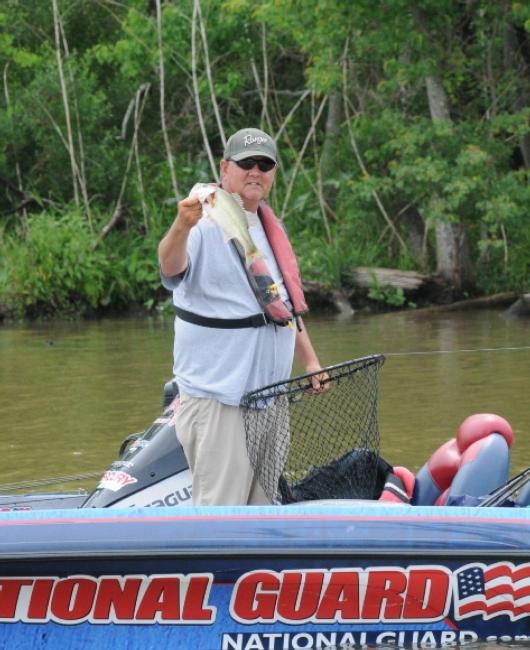
Observe how and where your pro is fishing, but just as importantly, ask yourself why he is making certain choices and changes in his approach (by all means, ask your pro directly if he’s willing to talk about his processes). Anyone willing to fuel up his boat, haul it to a tournament location and pay good money to compete against other accomplished anglers has clearly learned about the sport over the years and is therefore likely a good source of information.
As new a tournament angler, you will quickly become aware of the many mental aspects of the sport. While it is all well and good to be proficient with a baitcaster and make good decisions on tournament day about where to target fish (based on seasonal conditions, current weather forecasts, etc.), it’s another thing to have the mental toughness necessary to carry you successfully through a three- or four-day event. As every pro will tell you, having confidence in your decision-making process and being able to make snap judgments in a matter of minutes is perhaps the most difficult part of tournament fishing.
With hard work and a little luck, you’ll eventually reach a point where you are ready to fish a tournament as the boater, or pro, who is the master of his own destiny during competition. But you may want to continue to fish as a co-angler in some tournaments as well, possibly in higher profile circuits, because there’s always more to learn.
Climbing the tournament ladder
Once you’ve learned enough to know if you want to continue pursuing tournament fishing, you can branch out to fish a series of events within a region.
Many clubs or other grass-roots circuits offer divisional competition in which a participant can sign up for a series, usually four or five tournaments in a year, offering the chance for advancement to a higher level of competition.
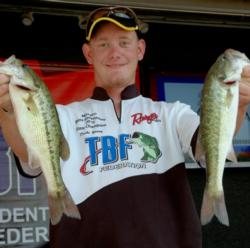 Consider The Bass Federation at the club level: bass clubs affiliate with TBF across the entire nation and offer local tournaments; members can fish multiple tournaments within a division and can qualify for regional competition; advancement to a national championship is the goal of many club anglers. The Walmart Bass Fishing League is a grass-roots circuit with a similar tournament hierarchy, offering affordable, close-to-home tournaments across 24 divisions and the chance for advancement to regionals, a championship and even tour-level fishing opportunities for the most successful participants.
Consider The Bass Federation at the club level: bass clubs affiliate with TBF across the entire nation and offer local tournaments; members can fish multiple tournaments within a division and can qualify for regional competition; advancement to a national championship is the goal of many club anglers. The Walmart Bass Fishing League is a grass-roots circuit with a similar tournament hierarchy, offering affordable, close-to-home tournaments across 24 divisions and the chance for advancement to regionals, a championship and even tour-level fishing opportunities for the most successful participants.
But whether you qualify for postseason competition or not, you will eventually want to commit to fishing all the tournaments in a division in a single season. This will test your ability to tournament fish in different settings and times of the year, giving you a good indication of whether you are ready to make the leap either to the front of the boat or to a higher level of competition.
Also, another mistake that too many novice tournament anglers make is worrying about sponsorships far too early in their careers. Remember, if you become an accomplished angler on the water and have the requisite amount of social skills, sponsorships will become available to you in due time. In short, concentrate on learning the sport first. However, as your proficiency increases and tournament wins multiply, the art of obtaining sponsorships and managing the business end of fishing will start to become a reality.
Take it from the pros
Here are just a few direct exchanges between fishing fans and pros about how to get started in tournament fishing, all taken from FLWOutdoors.com’s Reel Chat series:
Q: Greg, do you have any advice for someone interested in becoming a professional bass angler? I just started fishing local club tournaments, but I wanted to know what I should do to take the next step.
— Eric Holmes (Los Angeles, Calif.)
A: Actually, you’ve done the right thing. Personally, I believe in taking baby steps. I know a lot of good fishermen who got burned out because they made the jump to the next level too soon. I went through the BFLs, (EverStarts) and then the FLW Tour. That’s how it was for me. I’m not saying that everyone has to take that exact route, but you need to have confidence to move on to the next levels. It’s almost like you can be a star in a college sport, but then when you go to the pros, everybody is a star. You went from the big man on campus to a situation where everyone is a big man on campus. This sport isn’t going away, so you don’t ever have to be in too big of a hurry. But when you do get to that top level, I can promise you it is all that.
— Forrest Wood Cup winner Greg Hackney
Q: What advice can he give a 26-year-old co-angler who fishes the BFLs?
— Matt Brawner (Carrollton, Ky.)
A: Learn everything you can from your partner — whether they are on fish or not. Try and soak up as much as you can: how they go about their day, what techniques they are using, just everything. I fished as a non-boater for years on the BFL, and I fished as a boater just this Saturday. I sucked it up as a matter of fact — finished 60-something. Back to reality.
— FLW Tour winner Brandon McMillan
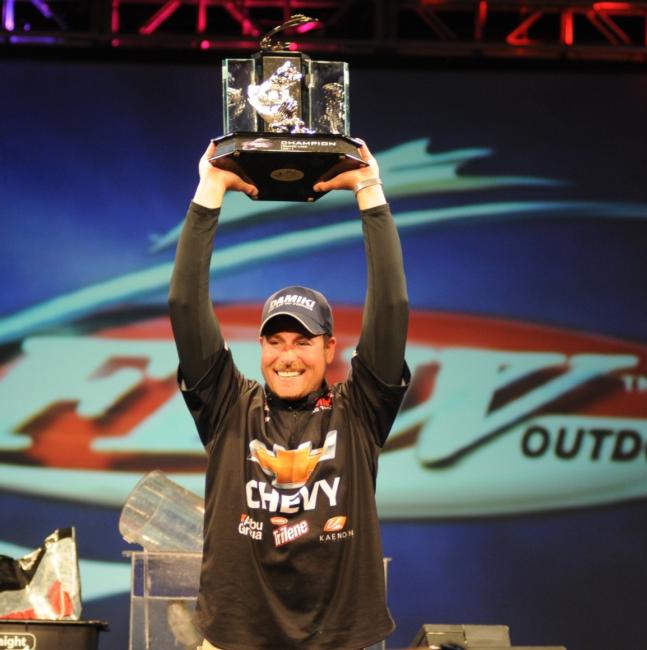
Q: When did you know you were good enough to be a pro fisherman? When did you start fishing competitively?
— Teddy (Sacramento, Calif.)
A: I started fishing competitively in 2001. And I don’t know that I ever really thought I was ready or not. I went to work for a few years after college. I basically saved all that money, and when I had enough to cover my first year fishing, I decided I was ready. I fished three events in 2006 as a co-angler, and my first pro event was Lake Travis in 2007.
— FLW Tour Angler of the Year Bryan Thrift
A wealth of information at FLWOutdoors.com
——————————————
Editor’s note: Countless articles have been published that provide much more detail about getting started in tournament fishing, including many at FLWOutdoors.com. We offer a few series – Co-angler Clinic , The Business of Fishing and Performance Psychology and Tournament Fishing – offering a whole host of informative pieces that provide greater depth on the amateur, business and mental side of fishing and that are as relevant today as when they were first published at FLWOutdoors.com. Survey the list of topics covered, select an article relevant to you, and click on the link.
——————————————